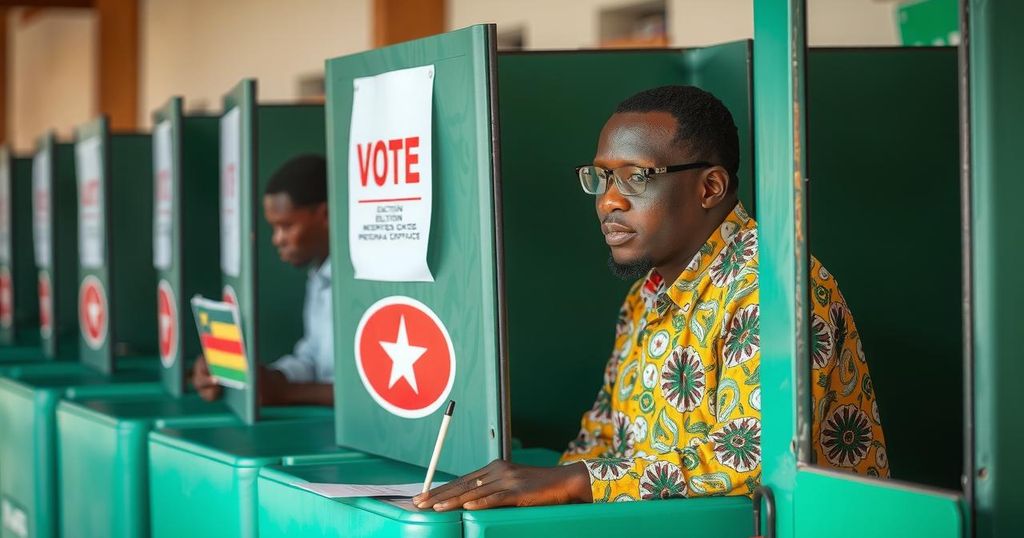Ghana’s elections are taking place during the nation’s worst economic crisis in decades, with 18.7 million registered voters but little hope for significant change from the main candidates. This election serves as an important test of democracy in a region troubled by violence and political instability.
In Accra, Ghana, the polls opened on Saturday for crucial presidential and legislative elections, closely watched as a significant measure of the country’s democratic resilience amid severe economic challenges. Approximately 18.7 million citizens are eligible to cast their votes in a nation grappling with its most dire economic crisis in a generation. The leading candidates, however, appear to provide scant reassurance regarding substantive alternatives for Ghana’s citizens, raising concerns about the future trajectory of governance in the country.
The current political landscape in Ghana is notably marked by a precarious economic situation characterized by high inflation, increased unemployment, and widespread poverty, issues that have deeply affected the populace. This election is crucial not only for Ghana but also within the regional context of West Africa, which has recently experienced a series of extremist attacks and military coups that have destabilized neighboring nations. As Ghana approaches these elections, the global community is observing its commitment to upholding democratic principles under these challenging circumstances.
The unfolding elections in Ghana represent a critical juncture for both the nation and the broader West African region. With 18.7 million registered voters participating amidst economic distress and limited hope from the leading candidates, the outcome will significantly influence Ghana’s political stability and democratic integrity in the years to come. Whether these elections will catalyze necessary reforms or perpetuate the status quo remains a central concern for the electorate and observers alike.
Original Source: www.washingtonpost.com






